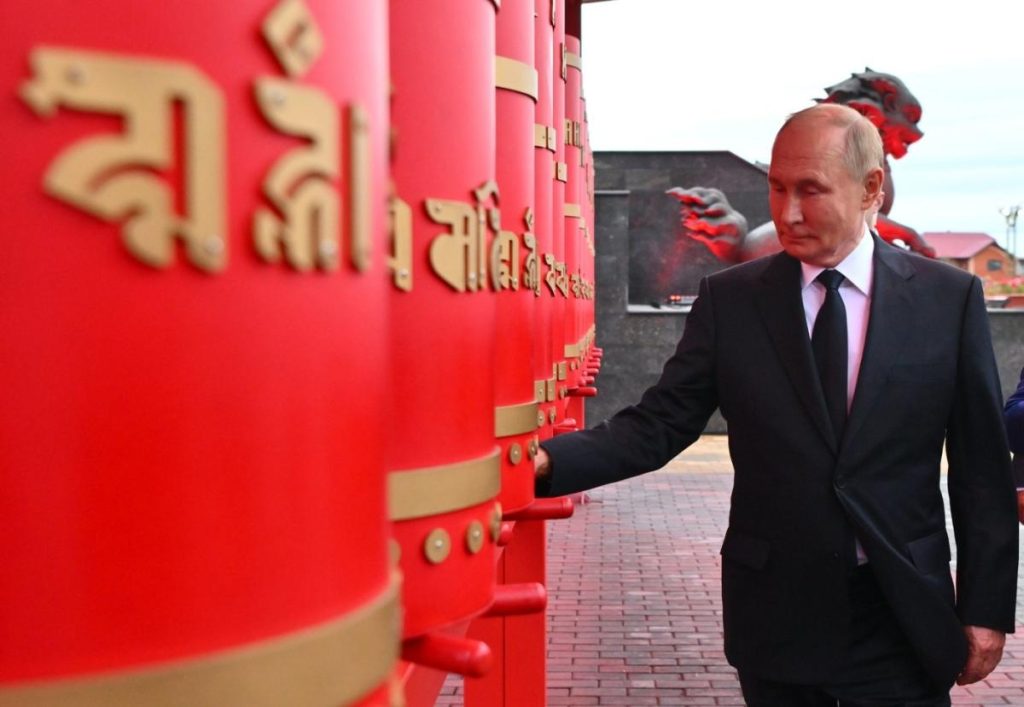Russian President Vladimir Putin arrived in Mongolia for an official visit, marking the first time he has visited a member country of the International Criminal Court, which issued an arrest warrant for him nearly 18 months ago on charges of war crimes in Ukraine. Despite calls from Ukraine for Mongolia to arrest Putin and hand him over to the court in The Hague, the Kremlin has expressed no concern about the visit. Members of the international court are obliged to detain suspects with arrest warrants, but the court lacks any enforcement mechanism. Mongolia, heavily reliant on Russia for fuel and electricity and on China for investments in its mining sector, will host Putin for a meeting with Mongolian leader Ukhnaa Khurelsukh.
The International Criminal Court has accused Putin of being responsible for the abduction of children from Ukraine, where conflict has been ongoing for over 2 1/2 years. Putin and the Mongolian leader are scheduled to participate in a ceremony commemorating the 1939 victory of Soviet and Mongolian troops over the Japanese army in Manchuria, which resulted in many casualties on both sides. Despite facing international isolation due to the Ukrainian conflict, Putin has recently visited North Korea, Vietnam, and China and has participated in meetings through video links to avoid potential ICC-related issues.
While Putin has been avoiding direct confrontations with ICC member countries, such as South Africa, where he joined a meeting via video link due to government lobbying against his physical presence at the BRICS summit. Aside from instances like these, Putin has continued to travel and engage in international affairs despite the looming threats of arrest warrants. The visit to Mongolia, strategically located between Russia and China, highlights Putin’s diplomatic efforts to maintain ties with allies like Mongolia, which rely on Russian and Chinese support for various economic sectors.
The Kremlin’s nonchalant attitude towards the visit to Mongolia and the ICC arrest warrant reflects Putin’s confidence in his diplomatic standings and influence on the international stage. Despite the allegations of war crimes in Ukraine and calls for his arrest, Putin’s international engagements demonstrate his continued ability to navigate diplomatic challenges and maintain relationships with countries like Mongolia. The visit to Mongolia serves as a testament to Putin’s resilience in the face of international pressure and his commitment to advancing Russia’s interests in the region.
As Putin meets with Mongolian leaders and participates in commemorative events, the visit underscores the complex diplomatic dynamics at play in the region, especially given tensions between Russia, Ukraine, and other international actors. The ongoing conflict in Ukraine and the ICC arrest warrant have not deterred Putin from engaging in diplomatic visits, highlighting his strategic approach to international relations and his ability to overcome challenges to advance Russian interests. The visit to Mongolia provides insights into Putin’s leadership style and his efforts to maintain alliances in the face of international scrutiny, showcasing his ability to navigate complex geopolitical landscapes with confidence and strategic finesse.
Overall, Putin’s visit to Mongolia amid the ICC arrest warrant demonstrates his diplomatic prowess and strategic priorities in international relations. Despite facing allegations of war crimes in Ukraine and calls for his arrest, Putin’s engagement with Mongolia and other countries showcases his commitment to advancing Russian interests and maintaining strategic partnerships. The visit highlights the complexities of international diplomacy and the importance of maintaining relationships with key allies, even in the face of legal challenges. Putin’s visit to Mongolia serves as a reminder of his resilience and determination in the face of international pressure, emphasizing his ability to navigate complex geopolitical landscapes with confidence and diplomatic finesse.


